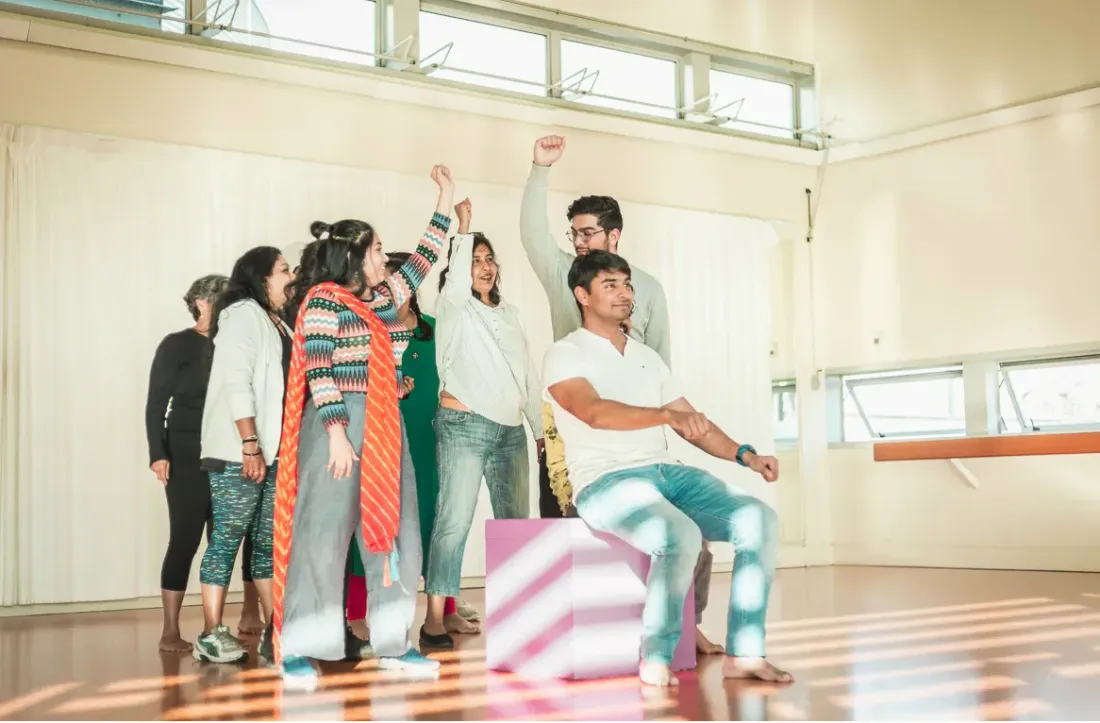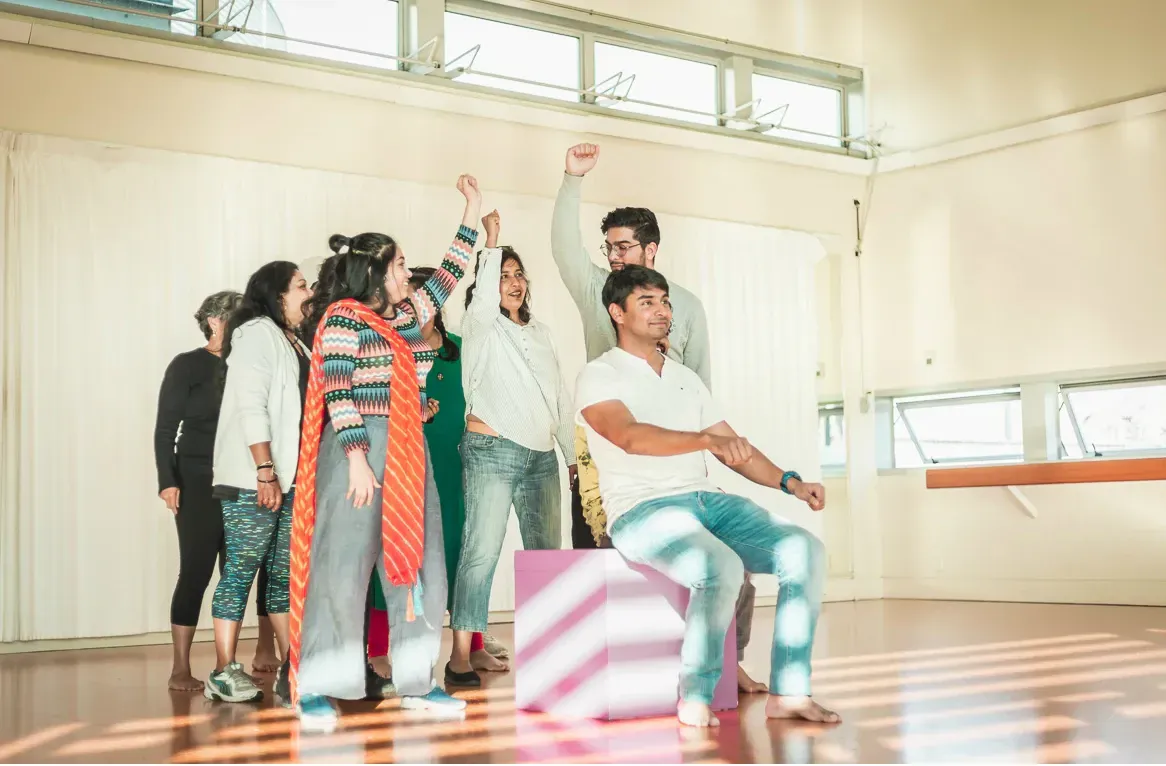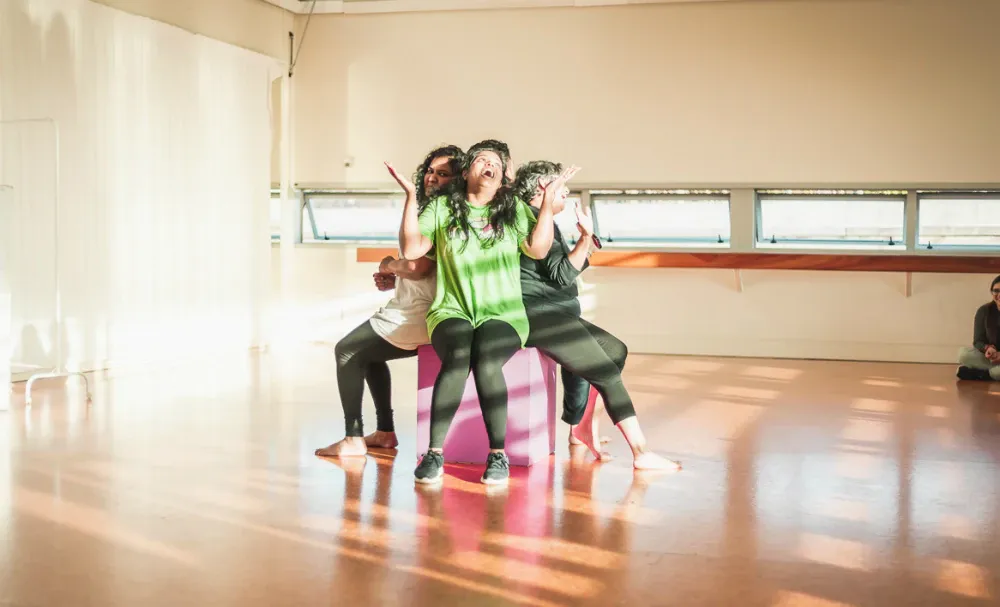Uncomfortable conversations
Written by


From Shakespeare to Brecht and beyond, playwrights use their art as a mirror to reflect the world - be it the world the way it is, the world they want it to be or the world they fear it becoming.
For a long time in the west, this mirror largely reflected a colonial world with limited diversity in its storytelling. But over the last two decades, there has been a gradual and welcome shift in this approach. Increasingly, we are seeing a myriad of voices sharing their stories and perspectives onstage.
This change was recently highlighted when Playmarket released its annual professional survey for 2018. It showed a significant increase in New Zealand-made work, including Asian theatre.
A watershed moment
For 14 years, Prayas Theatre Company has been sharing South Asian perspectives and stories with New Zealand. Having recently celebrated a successful run of A Fine Balance, they are treading the boards once again with First World Problems 2.0.
Featuring over 20 South Asian actors who range from emerging talents to seasoned performers, this work builds on the conversations begun by the original production, aptly named First World Problems, created by Prayas Theatre in collaboration with Agaram Productions. Acclaimed both critically and within the South Asian community, it was widely considered a watershed moment in New Zealand theatre.
Ahi Karunaharan, founder of Agaram Productions, says that the impetus stemmed from a remark made by his mother. “When you only do one show a year and you’re an artist of colour, there is a sense of responsibility of speaking for a community. Every time I put a show on, my Mum keeps reminding me of the stories and experiences that I haven’t told,” he explains.

“First World Problems is a way to create a platform where multiple voices can present work. It’s also like a lab for people wanting to test out directing or writing or producing, because there’s a lack of opportunities for South Asian practitioners to experiment or play. The short format takes the pressure off having to make something big. There was a real need to provide a space and platform for voices that we’re not hearing. It also takes pressure off myself so I don’t have to carry all those voices and provide an opportunity for development within the performing arts sector; specifically within the South Asian community.”
Because the production is asking wider audiences to have conversations about “big questions” it’s imperative that they are presented “in a joyous way.”
“Accessibility is so important,” Karunaharan says.“You can be hit by the politics or the truth, but there’s something liberating in being uplifted.”
“We’re asking the audience to come in and engage with an experience, so you don’t want to be dismissive or angry - otherwise those who were willing to take a chance on it are being reprimanded for doing so. We need to speak beyond, negotiate and find a sense of unity.”
“The works are all so varied in tone and themes; all of the practitioners come with different worldviews, political views and concerns.”
Similar to last year, First World Problems 2.0 issued a call out to writers, directors, actors and musicians to create a brief piece. Karunaharan curated its inaugural production, giving them “the provocation if you had the chance to say one thing onstage, what would it be?”
This year, First World Problems 2.0 is being curated by by Sananda Chatterjee (A Fine Balance, Dara, Love n Stuff).
“It’s a chance to bring different conversations out. The works are all so varied in tone and themes; all of the practitioners come with different worldviews, political views and concerns,” he says.
Uncomfortable conversations
When considering how the stories have developed over the past year, Karunaharan observes: “The uncomfortable conversations are becoming a lot easier to have.” The actors are finding subversive, fun ways to make their work accessible to a broader audience. There are a lot more women makers in 2.0 so there are a lot of questions around motherhood, my body my choice and consent from a very South Asian lens. A lot of our stories and mythologies are very patriarchal. So to have a lot of contemporary stories written, directed and performed by women is almost like a revisionist retelling of a lot of the myths we’ve been fed,” he says.
Within First World Problems 2.0, western appropriation of Indian culture is explored with a sense of “dark humour” and identity is “explored with a new twist,” says Karunaharan.
“It’s not about being lost in Aotearoa, it’s about being lost in a political climate and we’re moving forward,” he says. “We’re not just down by the migrant experience anymore - many of us are migrants but there’s a sense of us just telling stories now, which is a massive step forward.”
“We want to change and shift the narrative about how we’re represented, we want to take control of that and rewrite our version of existence.”
“We also have to consider who we are making these performances for,” says Karunaharan. “The writers are clear that there are two. For our very immediate South Asian audiences, we are highlighting the challenges and changes we need to make within ourselves. But there’s also a bigger call to arms about the way we are perceived. We want to change and shift the narrative about how we’re represented, we want to take control of that and rewrite our version of existence… Then there’s the wider audience we’re writing for. We want to have conversations with them so that they feel like they can carry on those conversations for us out there,” he explains.
Speaking to the now
Described as “a cheeky poignant mixtape” Karunaharan hopes that people will check out First World Problems 2.0 “because it allows you an insight into a community, a shared experience and the inner thoughts of your friends neighbours and colleagues you’ve perhaps not had a conversation with. I see the work as confessional permission to read their diary, it is urgent and speaks to the now.”
First World Problems 2.0 runs from October 15–19 (8pm) at Basement Theatre (Lower Greys Ave, Auckland).